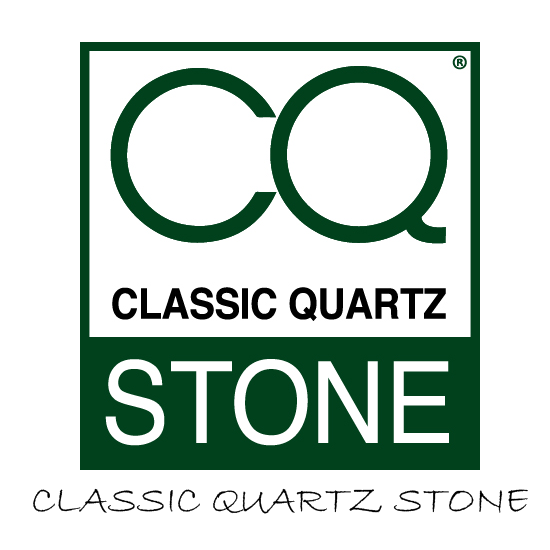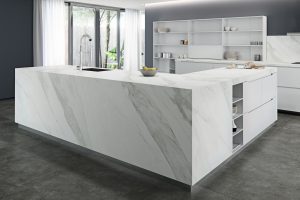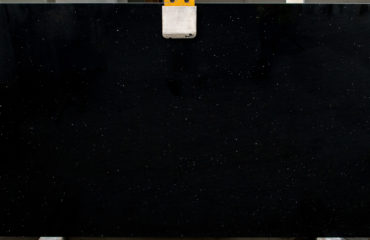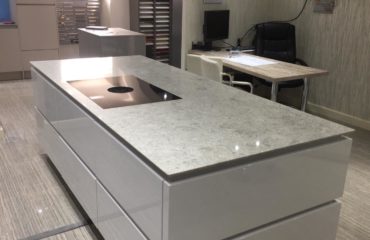Quartz and granite are most often referred to as the ‘most durable countertops’ but we shouldn’t forget about the strength and quality of porcelain slabs too. Although porcelain has been known for centuries, it recently became very popular for kitchen and bathroom countertops.
Quartz has been also on the rise for the past several years, because of the many advantages it comes with. Here’s the overview of the characteristics of both materials, which can help you decide the best choice for you.
Quartz is manufactured stone
Quartz is a manufactured product made of 93% natural quartz and 7% resin and pigments. This allows it to have one of the widest colour palettes and improved features.
Porcelain is also a man-made product, manufactured from a type of clay. The manufacturing process also allows various colours and finishes.
Porcelain is suitable for outdoor use
Unlike quartz, porcelain is UV stable, which means it will not fade through time and it can be used outdoors. Quartz, on the other hand, is restricted to indoor use only.
Both materials are stain resistant
In areas like kitchen and bathrooms, the tendency of spillages from chemicals, foods and liquids is frequent. This is why it is important to have the working surface that is non-porous and easy to clean; porcelain and granite are exactly those products.
Both materials are scratch resistant
An accident slip of a knife will damage neither porcelain nor quartz stone worktop, but beware that cutting directly on their surface can dull your knives,
Quartz is more resistant to high impact
Although both materials are resistant to scratches, porcelain can be chipped or cracked if exposed to high impact. Quartz is, on the other hand, more though when it comes to high impact, and it will not break as easily.
Porcelain slabs are lightweight
Unlike quartz, porcelain is a rather lightweight material which will not make a huge impact on your cabinets. Before the installation of quartz slabs, additional structural support may be required.
Both materials require very low maintenance
This is due to the fact that these materials are non-porous; the surface of both materials is easily cleaned with just warm water and soap. Additionally, neither of these two materials requires sealing.
They are both resistant to heat
Porcelain is manufactured at more than 500 degrees Celsius, which means it can handle hot pans and pots. Quartz stone can be damaged by sudden, high changes in temperature, so it is advised to use trivets and mats.
Quartz has the widest colour palette
Both materials have a wider colour palette, then natural stones for example. Quartz is well known to have the most versatile patterns and finishes on the market. It can have the appearance of marble while keeping the advantages of the material. Pigments can be also added to porcelain to make the appearance of a natural stone. Both can have a matte or polished finish.
Have you already decided which material is better for you? If so, please contact us, and we will help you choose the right colour and pattern for your dream kitchen or bathroom.




